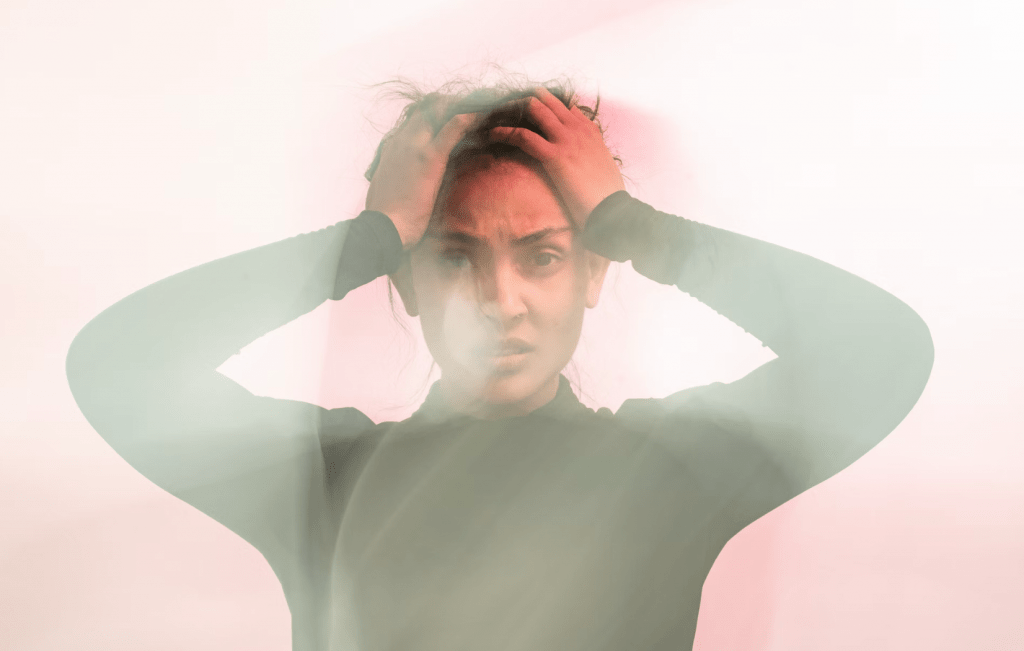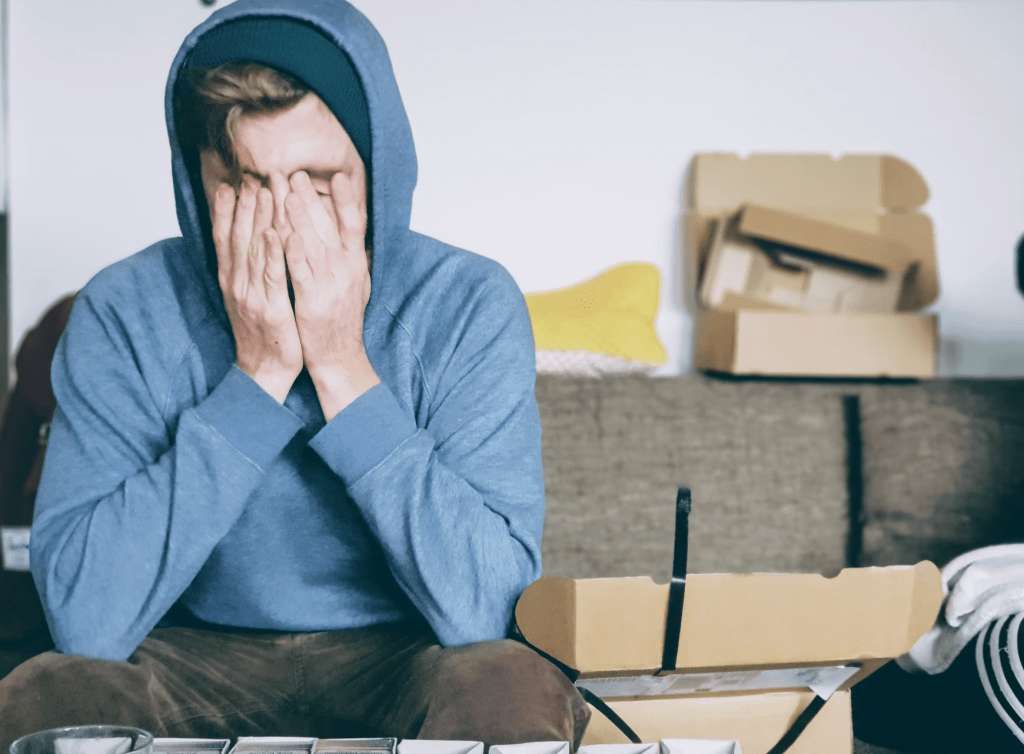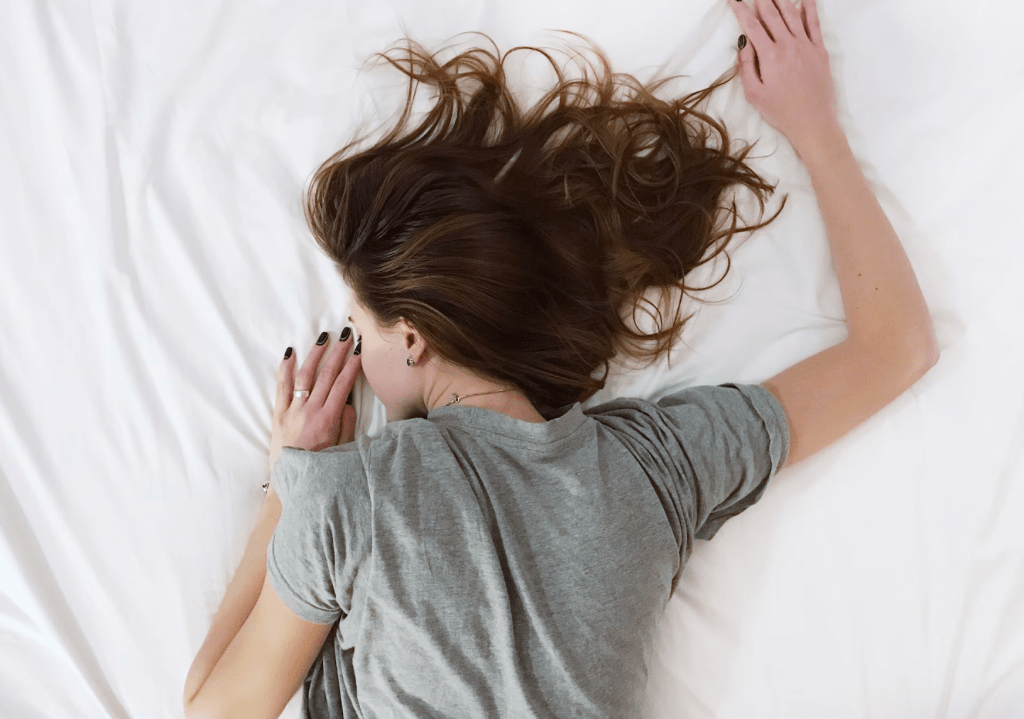Your brain mentally tracks every second you spend awake in your semi-dark bedroom. When your alarm goes off in the morning, you know that you’ll pay for not sleeping enough. You will have to drag yourself out of bed. In the morning, you will probably be a day full of drowsiness and lack energy to accomplish your tasks. Ironically, you’ll become more anxious and unable to sleep the harder you try. You are not alone if this cycle of anxiety rising and insomnia is familiar to you.
What about anxiety causing sleeplessness? Lack of sleep can cause anxiety. Yes, it can. You will learn the bidirectional relationship between sleep loss and anxiety, along with the mechanisms that cause it. You’ll also learn to control your anxiety so you can sleep well tonight.
**Note: **The information contained in this post should not replace medical advice given by a qualified healthcare provider. RISE is designed to promote natural sleep, good sleep habits and healthy sleep patterns. However, it doesn’t treat anxiety disorders or other health issues.
What is anxiety?

When describing anxiety, we often use phrases like “I am worried” or “I am stressed”. Here’s what you need to know: Anxiety differs from fear, worry and stress.
The Diagnostic and Statistical Manual of Mental Disorders defines anxiety, worry, and fear in three ways.
- The anticipation of a future threat is anxiety. The American Psychological Association (APA) defines it as an emotion that is characterized by tension and worried thoughts, along with physical changes such as increased blood pressure.
- Fear is the emotional reaction to a real or perceived threat.
- The cognitive aspect of anxiety is worry.
Anxiety and stress are closely related , as both feelings elicit the same responses. We will now discuss the difference between stress and anxiety.
How to Distinguish Between Anxiety and Stress

Both anxiety and stress are emotional reactions to triggers that can be physical or psychological. Examples of common anxiety include the fear of financial instabilities or a car crash that was close to being fatal. How are these two different?
Stress is the body’s response in a short time to external stressors. Hans Selyethe Father of Stress Research, defines stress as “the nonspecific response of your body to any request.” You automatically tighten up when a car is coming towards you.
Stress is what triggers anxiety. Stress dissipates as soon as you leave a dangerous situation. Anxiety, however, lingers on like an unwanted guest.
You may still feel anxiety even if you have avoided a collision by swerving your vehicle. You might be worrying about what-ifs like “What if I don’t react quickly enough next time?” What if I wasn’t paying attention right now? You can see that anxiety causes you to have persistent and obsessive thought about threats which may or may no happen.
Anxiety: The Different Faces of Anxiety
We all experience anxiety at times. Anxiety, when used in the right way and with the correct reasons, can alert you to dangers.
Imagine you are anxious because of a difficult work project. This makes you spend more time on the project, do research and write proposals. Anxiety can be a good thing if it helps you to produce outstanding work that will impress your clients and managers. It’s less useful to worry so much about the project that you experience mild panic attacks or sleepless nights.
You can see that anxiety becomes unmanageable when you let it run wild. You may have an anxiety disorder if you feel anxious most or all the time, and if this feeling has been going on for at least six months.
There are many types of anxiety disorders that can be triggered by different factors. These are the most common anxiety disorders:
- Generalized anxiety disorder:GAD is characterized by excessive, constant worry. This can affect your daily functioning. Triggers include everything from household chores to work pressures.
- A panic disorder is a set of panic attacks that are so intense you feel like you have a heartattack or similar. Nocturnal panic attack is the name given to panic attacks that happen at night.
- You feel anxious or uncomfortable during social interaction. It is difficult to interact with others because you feel that people are watching you and/or judging your behavior.
Anxiety disorders include:
- Posttraumatic Stress Disorder (PTSD):Personal experiences or observations of a traumatizing event may lead to a mental disorder.
- Obsessive compulsive disorder: Repetitive and unwanted thoughts, feelings, or ideas drive the desire to repeat a particular behavior.
Sleep disorders such as chronic insomnia or sleep apnea are often associated with anxiety disorders. You don’t have to be diagnosed clinically with anxiety disorders to experience its effects. This is especially true in regards to sleep loss.
Your body in anxious mode
You may find that your body tenses up and sweats under your arms when you are in anxiety mode. These are only a few of the symptoms that accompany anxiety. Some common examples are:
- Rapid breathing or breathlessness
- Nervousness, fear and agitation
- Hyperawareness is a sense that you have.
- Feeling restless or having difficulty concentrating
- Sleeping disorders
You may experience symptoms like:
- Pain or pressure in the chest
- Feeling dizzy or faint
- The arms or legs may feel tingling, or even numb.
We need to look at the biology of your body to understand what’s going on.
When you’re stressed, the hypothalamus in your brain releases corticotropin-releasing factor (CRF) This hormone is the main driver of the hypothalamic-pituitary-adrenal (HPA) axis. The pituitary (located below the hypothalamus), in response to CRF, releases adrenocorticotropic hormonal into the bloodstream. Stress hormones like adrenaline and cortisol are released when the adrenocorticotropic hormonal reaches your adrenal glands.
CRF also controls emotional regulation, as well as cognitive function. CRF, in particular, downplays the serotonin releasea brain chemical that regulates your moods. A low serotonin level, caused by an anxious mind can lead to negative emotions like fear, depression and frustration.
Researchers have also found a bidirectional relationship between noradrenaline (norepinephrine) and CRF. Noradrenaline is both a neurotransmitter and a hormone. In a fight-or flight response, the CRF releases norepinephrine into the hypothalamus and prefrontal cortex as part of a stressful event. Noradrenaline activates CRF cells, which stimulates the HPA axis. Higher than normal norepinephrine concentrations are the result.
- Dilatable pupils
- Blood pressure increases
- A faster heart rate
- The production of blood sugar and fatty acid for energy metabolism is increased
- Cognitive activity increases
These internal changes can give you a competitive edge in times of real danger. The prolonged state of anxiety makes you unable to fall asleep or relax.
Anxiety and sleep loss: A Two-Way Interaction
According to The Anxiety & Depression Association of America (ADAA), deciding which comes first, anxiety or sleep disorders is similar to the “chicken and egg” dilemma. It’s well known that anxiety causes most sleep disorders and sleep loss can be a sign of many mental illnesses.
The web is even harder to untangle because anxiety and insomnia are linked in a two-way manner. You may experience sleep anxiety in which you are concerned about the lack of sleep. It is not good for you if your anxiety levels are already high.
Sleep deprivation due to anxiety
Sleep problems can be caused by anxiety. We’ll look at how anxiety can lead to insomnia.
Rumination
The classic anxiety symptom is the ruminating. It’s difficult to fall asleep when you are stuck in a loop of worrying thoughts, whether it is about an impending performance review, or the poor grades your child has received. Rumination is known to prolong sleep latency (you have a harder time falling asleep). This reduces your sleep and increases sleep debt.

Norepinephrine Dopamine and Melatonin
There are biological and psychological consequences of anxiety that affect sleep. Norepinephrine, the organic chemical that is responsible for your fight or flight response has huge ramifications in sleep due to its role within your sleep-wake cycles. Norepinephrine, an arousal hormone, is active in wakefulness and slow to fire during non-REM sleep. It’s almost silent during REM.
Norepinephrine triggers dopamine release, which is a neurotransmitter responsible for promoting wakefulness. Dopamine is produced by the pineal, your body’s internal timekeeper. It translates light signals into a sleep-wake cycle. Norepinephrine interacts with dopamine to regulate your body’s natural production of melatonin (a hormone that promotes sleep). Norepinephrine, in the absence of Dopamine, stimulates Melatonin Synthesis
Dopamine neutralizes the norepinephrine in your system, which lowers its melatonin levels. In the morning, when the darkness has subsided and it is time to awaken, dopamine receptors appear naturally in the pineal.
Dopamine is produced in anxiety situations regardless of the light outside. This dampens melatonin. An anxious mindset at night can cause dopamine to be produced and hinder melatonin production. This is not good for your sleep.
High sleep Reactivity
Stress can cause your sleep to be disrupted. Stress makes it much more difficult to sleep well (and meet your sleep needs).
The Journal of Sleep reports that highly anxious people have altered sleeping patterns.
It took longer for me to get asleep
Deep sleep and REM Sleep Lessened
Had more light sleep (non-REM sleep)
You may experience more frequent micro-arousals (micro-arousals), which can also cause minor sleep disturbances.
Sleep disturbances are caused by anxiety and prevent you from getting the sleep that your body requires (determined genetically).
Reduced deep sleep, REM and REM-free sleep can be disastrous for emotional wellbeing. The research suggests that the prefrontal cortex reconnects during this sleep phase and gains controlover our amygdala. This is the emotional brain part that controls how we perceive negative emotions. Poor sleep can lead to fatigue the next day, but it also increases reactivity.
To be continued…






Leave a Reply